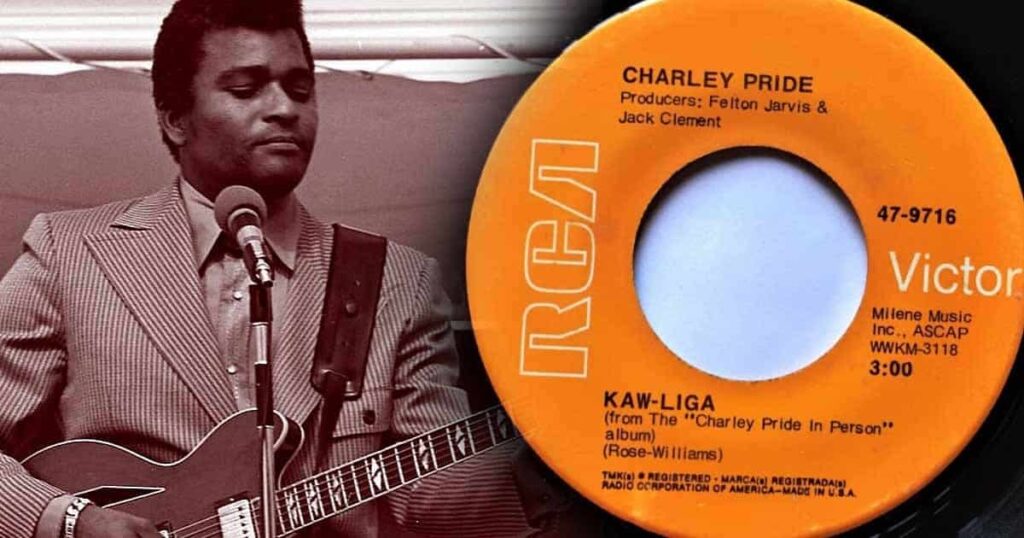
A ballad of paralyzing shyness, unrequited devotion, and the tragedy of a love left unspoken.
There are certain songs, woven into the very fabric of Country Music’s history, that possess a longevity that defies time and change. Among them is “Kaw-Liga,” a heartbreakingly whimsical narrative that found its way from the pen of the great Hank Williams Sr. to the golden voice of Charley Pride, proving that the truest stories of love and loss resonate across generations. Pride’s recording, released in 1969 on his landmark album, Charley Pride in Person, took a deeply nostalgic classic and made it his own, achieving a tremendous level of success that helped solidify his position as a bona fide superstar.
The Charley Pride version of “Kaw-Liga” was a sensation on the country charts. It peaked at an impressive No. 3 on the Billboard Hot Country Singles chart in April 1969. Furthermore, it reached No. 1 on the Cash Box Country Top 60 chart, signifying its immense popularity among country radio listeners. While it may not have been his first Billboard number one—that honor would go to “All I Have To Offer You (Is Me)” later that same year—“Kaw-Liga” was crucial in cementing his chart dominance in that transformative period. By taking on a song so intrinsically linked to the legendary Hank Williams (whose posthumous original hit number one for 14 weeks in 1953), Pride paid homage to the genre’s past while powerfully claiming his spot in its future.
The genesis of “Kaw-Liga” is fascinating. Co-written by Hank Williams and Fred Rose, the song is an allegory told from the perspective of an observant narrator, lamenting the plight of Kaw-Liga, a wooden Indian statue standing by a store door. Kaw-Liga is hopelessly, silently in love with an Indian maid statue across the way. The central, aching tragedy of the song lies in his tragic flaw, captured perfectly in the line: “Kaw-liga, too stubborn to ever show a sign, Because his heart was made of knotty pine.” His inability to express his affection—his “knotty pine” heart preventing him from reaching out—dooms him. The Indian Maid is eventually purchased and taken away, leaving poor ol’ Kaw-Liga to stand “as lonely as can be, and wishes he was still an ol’ pine tree.”*
For an older audience, this song is so much more than a simple narrative. It evokes that shared, universal memory of shyness, regret, and the paralyzing fear of speaking one’s heart. Who among us hasn’t been that wooden head, standing stiffly while a chance at love, happiness, or a missed opportunity walks right out the door? Charley Pride’s smooth, earnest delivery brings a deep, almost parental sympathy to the story. He doesn’t just sing the words; he feels the wooden Indian’s deep, carved sorrow. Unlike Williams’ slightly more whimsical take, Pride’s rendition, often performed live with a captivating energy, gave the song a grander, more polished sound, yet it never lost its core emotional resonance—the aching, timeless pain of a love that was right there but slipped away because one was too proud, too afraid, or too “knotty-pine” to say a word. It remains a poignant masterpiece about the high cost of holding back.